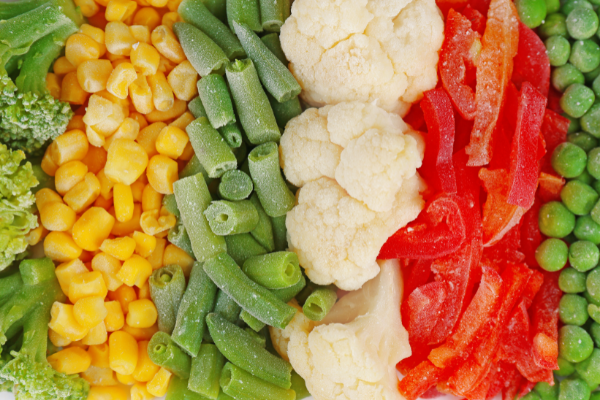Frozen Vegetables Lock in Nutrients Better Than Fresh Vegetables
"In the past two years, the domestic market of frozen vegetables has been quite stable, and the selling price mainly depends on factors such as the purchasing capacity of the international market and the price of domestic raw materials. Relatively speaking, Chinese consumers still prefer to buy fresh vegetables. This is due to the incomplete understanding of the nutritional value of frozen vegetables," said Mr. Xu.

"Many people have misunderstandings about frozen vegetables, thinking that frozen vegetables lose a lot of nutrients. In fact, frozen vegetables are as nutritious as fresh vegetables and even have higher nutritional value. This is because frozen vegetables have relatively high requirements for raw materials, and the nutrients in vegetables are not lost during transportation. "
"We have many varieties of frozen vegetables, among which, frozen onions, frozen garlic, and frozen asparagus have the best sales. At this stage, except for a few products sold to domestic canteens and hotels, most of our frozen vegetables are exported to South Korea, Canada, the US, Russia, Australia, Germany, Netherlands, and Belgium."
"Because domestic labor and processing costs are relatively low compared to foreign countries, the mechanized process of dicing, shredding, or slicing vegetables is done in China, and the packaging types vary according to the different uses of customers. For example, most of the frozen vegetables sold to supermarkets and stores are delivered in 1kg-2.5kg packages, while some customers who purchase frozen vegetables and use them to make sauces, seasonings, freeze-drying, etc. prefer large packages. "
- We have practically run out of broadleaf herbicides for garlic cultivation
- Egypt: Record onion exports in the last six months
- Our fruit drying concept offers added value to growers and traders
- Larger US lemon crop this season
- Peruvian pineapple still has great potential to increase its exports
- Pagoda held a Newton apple tasting in Guangzhou
 Telephone :+86-15562397099
Telephone :+86-15562397099










